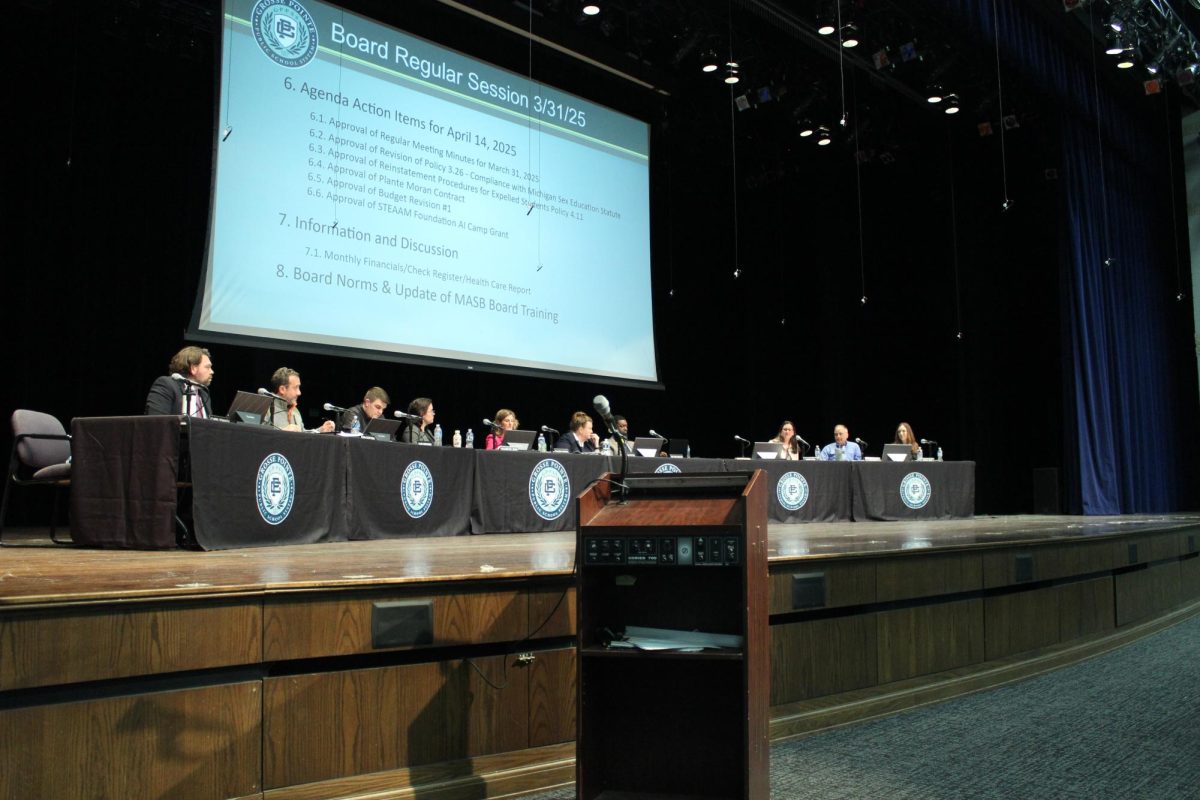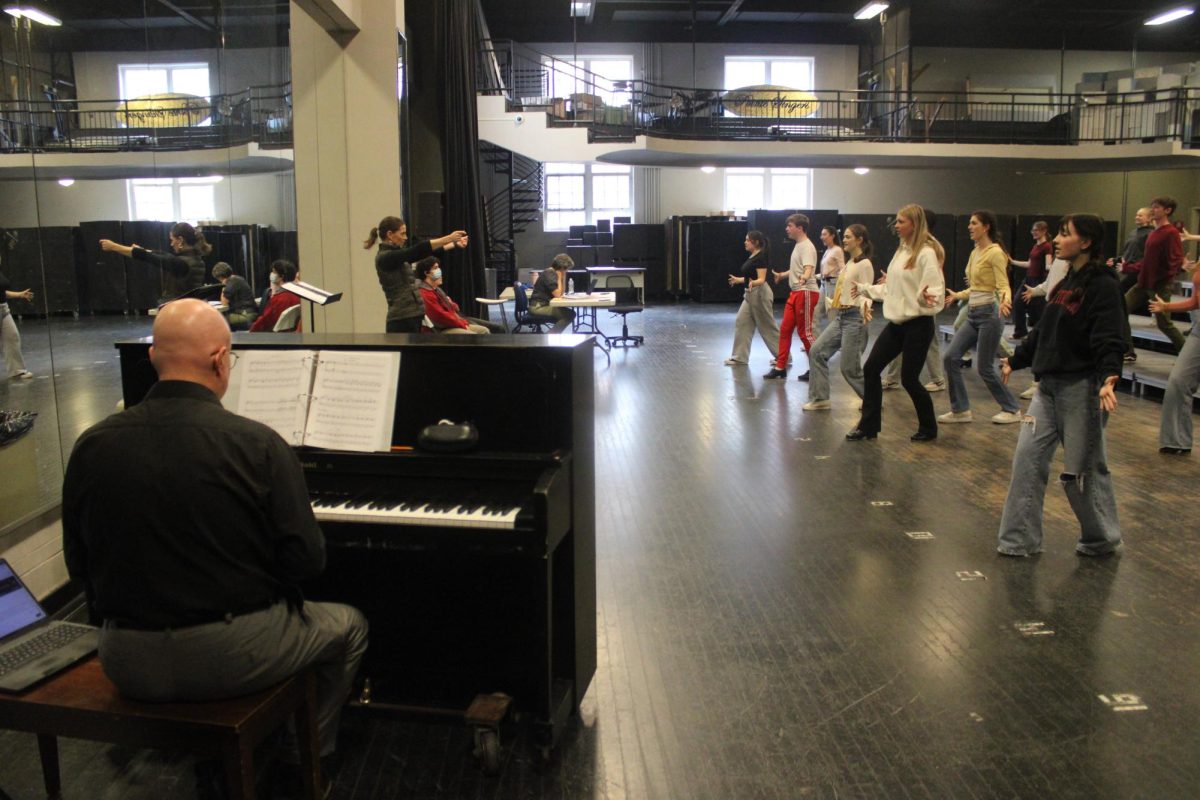Putting health over ‘success’
January 9, 2019
For a high school student, the school day does not end at 3:05 p.m. We know that it doesn’t end after rehearsal, practice or a club meeting. Maybe, on a good day, it ends after dinner. But on most days, it ends when you can’t keep your eyes open, grumble “screw it” to yourself and crawl into bed, math unchecked, project unfinished.
According to a study by the University of Phoenix in 2014, 12th grade teachers report assigning 3.5 hours of homework every week. While 42 minutes a night may not sound too bad, Grosse Pointe South students are enrolled in six to seven classes a day, amounting to a total of almost 5 hours every night.
We at the tower feel that students today are taught to operate on a flawed system, a system which forces them to choose between their health and what they perceive as success. The idea that academic accomplishment takes priority over simple things like family, sleep or “self-care” is reinforced by the culture surrounding education in the U.S..
At South, students strive for good grades, high test scores, leadership positions and volunteer hours. They want to go on dates, to stay up late with friends but also get to bed by 10 p.m. every once in a while.
Homework assignments and tardy slips aren’t just extra math practice and a way to keep a schedule. Due dates and attendance policies are meant to train us for our lives after high school; to finish presentations and show up to meetings on time.
But what students really take away from their school assignments and busy extracurricular schedules is the expectation to overachieve without being overwhelmed. We think that the key to student success is a workload that allows students to enjoy their assignments rather than view them as mindless tasks.
We worry that students still feel the need to overcommit due to the pressure to attend college, especially in our community. For many, college seems like the only option because our education system revolves around the assumption that it is. For others, financial barriers make merit scholarships essential to their chance at higher education.
We at The Tower appreciate the efforts of South’s counseling staff to educate students about mental health and healthy coping strategies. We hope that students take advantage of these services in high school to prepare them for college and future employment.
While the staff at Grosse Pointe South is involved in maintaining student’s mental health, we feel that coping and awareness of students personal abilities should be emphasized in classrooms. There are few things students appreciate more than a teacher that cuts them a break on an especially busy night.
We believe that it’s crucial for students to establish healthy studying and time management habits early on, so they’re confident in their abilities prior to leaving for college or joining the workforce.
These issues are not unique to students at Grosse Pointe South, or even high schoolers as doctors look for solutions to the college mental health crisis nationwide. Real change means fostering a new culture that recognizes students as people who want to succeed but also need time to be people. We encourage students to strive for a workload they enjoy, rather than one that looks good on paper.















































































